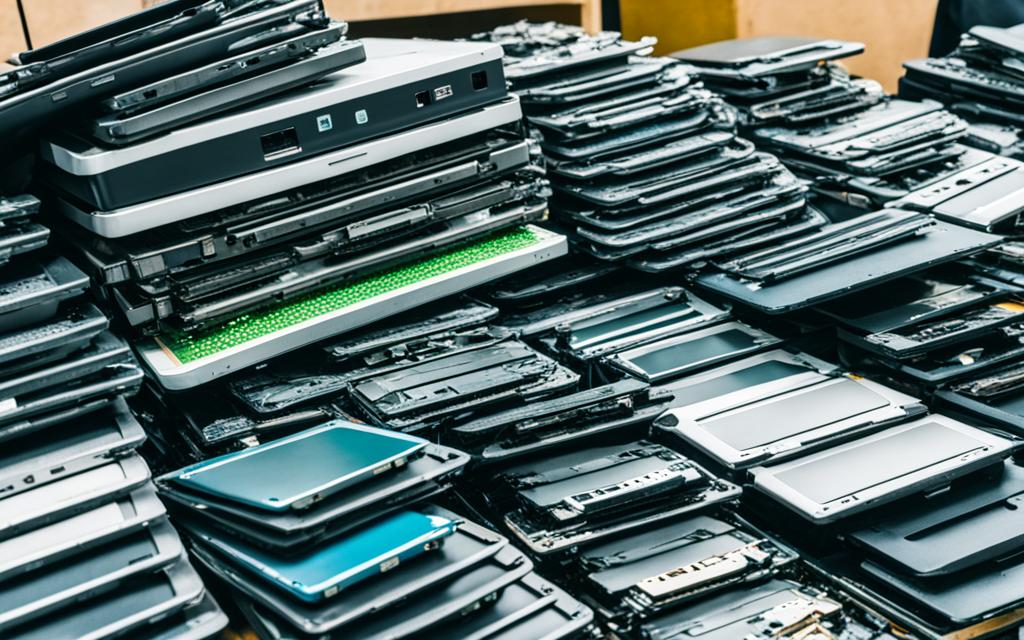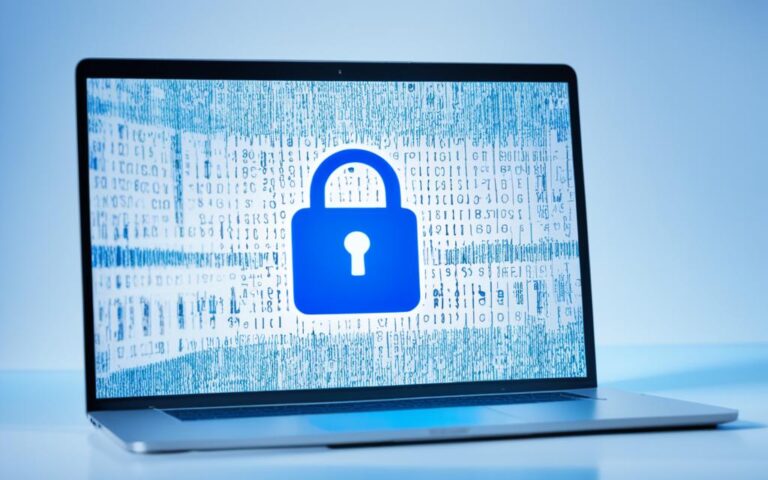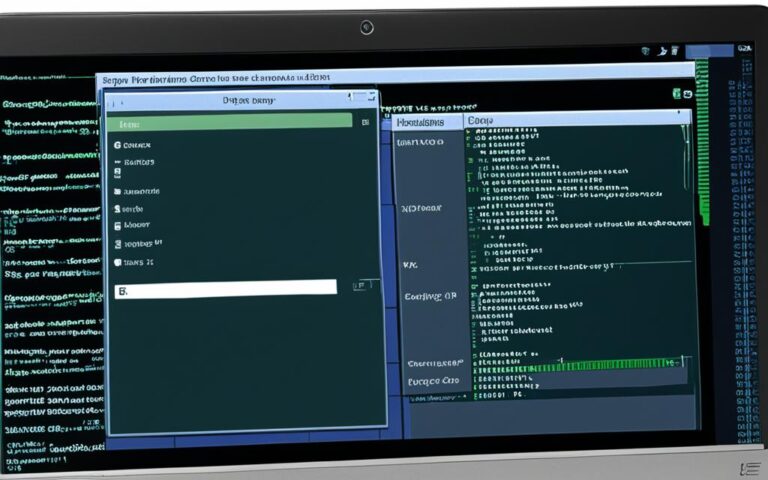The Connection Between Laptop Recycling and Data Protection
In today’s digital age, where laptops have become an integral part of our lives, laptop recycling has emerged as a crucial practice. However, laptop recycling is not just about being environmentally conscious; it is also vital for data protection. With the implementation of the General Data Protection Regulation (GDPR), businesses must ensure the proper disposal of IT equipment that may contain personal data. Failing to do so can result in data breaches and legal consequences.
It is essential to understand the impact of GDPR on the disposal of IT equipment. Any broken or outdated piece of IT equipment that could store personal data must be disposed of correctly to avoid potential data breaches. Companies must recognize the importance of properly disposing of IT equipment to safeguard sensitive information and comply with GDPR regulations.
The Impact of GDPR on IT Equipment Disposal
The implementation of the General Data Protection Regulation (GDPR) has revolutionized the way businesses handle their end-of-life IT equipment. In the digital age, companies are continuously upgrading their technology, leaving behind broken or outdated devices that may still contain personal data. It is imperative that these devices be disposed of correctly to avoid potential data breaches and comply with GDPR regulations.
Under GDPR, organizations are responsible for ensuring the secure disposal of IT equipment that has the potential to store personal data. This encompasses laptops, desktop computers, servers, and other devices. Failure to dispose of these devices properly can result in unauthorized access to sensitive information, jeopardizing both the privacy of individuals and the reputation of businesses.
Companies must recognize the importance of adopting appropriate IT equipment disposal practices to mitigate the risks associated with data breaches. The GDPR holds businesses accountable for effectively managing and protecting personal data throughout its lifecycle, including the end-of-life phase. Compliance with GDPR requires organizations to have robust processes and procedures in place for the disposal of IT equipment.
“The disposal of IT equipment that may store personal data is a critical aspect of GDPR compliance. Organizations must understand the impact of GDPR on IT equipment disposal and take necessary measures to safeguard sensitive information.”
When disposing of IT equipment, businesses should adhere to the following best practices:
- Ensure all data is securely erased from storage devices using certified data erasure methods.
- Physically destroy storage media that cannot be securely erased.
- Choose a reputable IT asset disposal provider that complies with GDPR regulations and provides proof of proper data destruction.
- Maintain an inventory of disposed IT equipment to demonstrate compliance.
Implementing these practices not only protects personal data but also helps organizations demonstrate their commitment to data privacy and security. It is crucial for businesses to prioritize IT equipment disposal to avoid legal consequences, maintain customer trust, and protect their reputation.
The Environmental Perspective
Proper IT equipment disposal not only safeguards personal data but also benefits the environment. Recycling IT equipment helps prevent electronic waste from entering landfills and reduces the extraction of finite resources required for manufacturing new devices. By adopting environmentally responsible disposal practices, businesses can contribute to sustainable practices and minimize their carbon footprint.
| Environmental Benefits of IT Equipment Recycling | Actions to Minimize Environmental Impact |
|---|---|
| Reduction of electronic waste | Partner with certified e-waste recycling companies for responsible disposal and recycling. |
| Conservation of valuable resources | Reuse or repurpose functional IT equipment where possible to extend its lifespan. |
| Energy conservation | Dispose of equipment at facilities that practice energy-efficient recycling methods. |
| Prevention of hazardous material contamination | Ensure equipment is recycled at certified facilities that adhere to strict environmental regulations. |
By embracing secure and environmentally responsible IT equipment disposal practices, businesses can meet the requirements of GDPR, protect sensitive data, and contribute to a sustainable future.
Secure Data Erasure and Destruction for Compliance
Ensuring compliance with GDPR regulations can be a complex task for businesses, particularly when it comes to the disposal of IT equipment. To guarantee the secure erasure of data and the compliant destruction of devices, hiring a reputable third-party company is the easiest and most reliable solution. These specialists possess the expertise and resources to handle data erasure, destruction, and environmentally compliant recycling, satisfying the stringent requirements for GDPR compliance.
By entrusting the data erasure and destruction process to experts, businesses can rest assured that old and inaccessible data will be safely removed from storage devices. Furthermore, these companies employ environmentally conscious practices by recycling and destroying non-reusable parts of the equipment following compliance protocols. It is essential to select a trusted company that provides proof of data destruction, allowing businesses to demonstrate their commitment to complying with GDPR requirements.
Benefits of Secure Data Erasure and Destruction
- Safely remove old and inaccessible data from storage devices
- Compliant destruction of non-reusable parts
- Environmentally conscious recycling practices
- Demonstrate GDPR compliance with proof of data destruction
- Peace of mind knowing data is securely handled
By implementing secure data erasure and destruction methods, businesses can effectively safeguard their sensitive information and mitigate the risk of data breaches. Additionally, by opting for environmentally compliant recycling, companies can align their data protection practices with their sustainability goals.
Next, we will delve into the proper disposal methods for data protection, ensuring that businesses have a comprehensive understanding of the measures required to maintain compliance while safeguarding valuable data.
| Secure Data Erasure and Destruction | Benefits |
|---|---|
| Guaranteed compliance with GDPR regulations | Ensures businesses meet legal requirements |
| Reduces the risk of data breaches | Protects sensitive information |
| Environmentally conscious recycling | Contributes to sustainability goals |
| Proof of data destruction | Provides evidence of GDPR compliance |
Proper Disposal Methods for Data Protection
In today’s digital age, data protection is of utmost importance for businesses. When disposing of IT equipment, proper methods must be followed to ensure sensitive information remains secure. To effectively protect data during the disposal process, businesses should consider the following:
1. Removing Personal Data and Sensitive Information
Before recycling any IT equipment, it is essential to remove all personal data and sensitive information. This includes clearing browsing history, deleting files, and securely erasing data from storage devices. Taking these precautions significantly reduces the risk of data breaches and unauthorized access to confidential information.
2. Disconnecting Cables and Peripherals
In addition to data removal, disconnecting all cables and peripherals from the equipment is crucial. This ensures that no external devices are inadvertently connected to the recycled IT equipment, which could compromise data security. Properly disconnecting cables and peripherals minimizes potential vulnerabilities and enhances overall data protection.
3. Cleaning Equipment to Remove Dust and Debris
Prior to disposal, cleaning the equipment is necessary to remove dust and debris. Dust can contain particles that may contain remnants of sensitive information. Thoroughly cleaning the equipment minimizes the risk of data recovery and further safeguards against data breaches.
4. Securely Erasing or Destroying Data on Hard Drives
One of the most critical steps in proper data disposal is securely erasing or destroying data on hard drives. Simply deleting files is not sufficient, as data can still be recovered. To ensure complete data protection, businesses should use specialized software or seek professional data destruction services to securely erase or physically destroy hard drives.
5. Choosing a Reputable Recycling Facility
When recycling IT equipment, it is vital to choose a reputable recycling facility that follows data destruction best practices. These facilities employ secure methods to handle and dispose of the equipment, ensuring data protection throughout the process. Partnering with a trusted and certified recycling facility provides peace of mind regarding proper data disposal.
By implementing these proper disposal methods, businesses can effectively safeguard sensitive information and comply with data protection regulations. Prioritizing data protection during the disposal process minimizes the risk of data breaches and helps establish a strong foundation of trust with clients and partners.
| Key Steps for Proper Disposal | Benefits |
|---|---|
| Removing personal data and sensitive information | – Minimizes the risk of data breaches – Maintains compliance with data protection regulations |
| Disconnecting cables and peripherals | – Prevents unauthorized access to data – Enhances overall data security |
| Cleaning equipment to remove dust and debris | – Reduces the risk of data recovery – Enhances data protection measures |
| Securely erasing or destroying data on hard drives | – Ensures complete data anonymity – Mitigates the risk of data breaches |
| Choosing a reputable recycling facility | – Guarantees proper data disposal – Demonstrates commitment to data protection |
Environmental Benefits of Laptop Recycling
Laptop recycling not only protects data but also offers significant environmental benefits. By recycling laptops and other electronic devices, we can reduce electronic waste and prevent hazardous materials from entering landfills. Recycling promotes a sustainable approach to managing electronic devices, contributing to a cleaner and greener future.
Here are some of the key environmental benefits of laptop recycling:
- Electronic Waste Reduction: Recycling laptops ensures that they do not end up in landfills, where they can release toxic chemicals and contribute to environmental pollution. By diverting laptops from the waste stream, we minimize the amount of electronic waste generated, conserving valuable landfill space and reducing the overall impact on the environment.
- Resource Conservation: Laptops contain precious metals such as gold, silver, and copper, as well as valuable materials like plastics and glass. Recycling allows us to recover these resources by extracting and reusing them in the production of new devices. This reduces the need for raw materials extraction and conserves energy, helping to preserve natural resources.
- Energy Savings: Recycling laptops requires less energy compared to manufacturing new ones from raw materials. The extraction, processing, and manufacturing of materials for new devices consume significant amounts of energy. By recycling and refurbishing laptops, we reduce energy consumption and lower greenhouse gas emissions, contributing to a more sustainable energy footprint.
- Prevention of Pollution: Laptops often contain hazardous substances like lead, mercury, and flame retardants. If improperly disposed of, these chemicals can leach into the soil and water, polluting ecosystems and posing risks to human health. By recycling laptops at specialized facilities, we ensure that these hazardous materials are safely managed and prevented from causing environmental contamination.
“Laptop recycling plays a vital role in promoting a circular economy and reducing the ecological impact of electronic waste. By embracing responsible recycling practices, we can protect our environment for future generations.”
Repurposing and Donating Old Laptops
Rather than immediately recycling old laptops, businesses and individuals have the option to repurpose them for alternative uses. Repurposing not only extends the lifespan of laptops but also contributes to the reduction of electronic waste. Furthermore, functional laptops can be donated to charities, schools, or non-profit organizations, allowing others in need to access technology.
Before donating old laptops, it is essential to prepare them properly to ensure data protection and privacy. Securely erasing personal data from the devices is a crucial step in preventing any potential data breaches. By taking the necessary precautions, donors can confidently contribute to worthy causes while safeguarding sensitive information.
Benefits of Repurposing Old Laptops:
- Reduces electronic waste
- Extends the lifespan of laptops
- Cost-effective alternative to purchasing new devices
- Allows for customization to suit specific needs
- Encourages creativity and innovation in finding new uses
Table: Comparison of Repurposing and Recycling Old Laptops
| Repurposing | Recycling |
|---|---|
| Extends laptop lifespan | Reduces electronic waste |
| Provides access to technology for those in need | Prevents hazardous materials from entering landfills |
| Allows customization and innovation | Conserves valuable resources |
“By repurposing old laptops, we not only reduce electronic waste but also empower others by providing access to technology they may not have otherwise.”
Repurposing old laptops is a practical and sustainable approach that benefits both individuals and communities. It allows for the continuation of useful technology, promotes resource conservation, and supports those who lack access to modern devices. By considering repurposing and donation as viable options, we can make a positive impact on both the environment and society.
Hazardous Materials in Laptops and Safety Protocols
Laptops can contain hazardous materials that pose risks to both human health and the environment. These materials include lead, mercury, and flame retardants. Proper handling and disposal of laptops are essential to ensure safety and environmental protection.
When working with laptops, it is important to follow safety protocols to minimize exposure to hazardous materials. This includes wearing appropriate personal protective equipment (PPE) such as gloves and masks, as well as working in well-ventilated areas.
To safely dispose of laptops and mitigate the risks associated with hazardous materials, it is recommended to recycle them at certified facilities. These facilities specialize in handling and safely managing the disposal of electronic waste, including laptops.
By recycling laptops at certified facilities, businesses can ensure that hazardous components are properly handled and disposed of in compliance with regulations. This helps prevent harm to human health and ecosystems, as well as the potential contamination of landfills and water sources.
Safely managing hazardous materials in laptops is an integral part of responsible electronic waste management. By prioritizing safety protocols and recycling laptops at certified facilities, businesses can contribute to a safer and more sustainable environment.
Key Safety Protocols when Working with Laptops:
- Wear appropriate personal protective equipment (PPE) such as gloves and masks
- Work in well-ventilated areas to minimize exposure to harmful fumes and particles
- Follow proper handling procedures and avoid damaging laptop components to prevent the release of hazardous materials
- Ensure that laptops are stored properly after use, away from heat sources or direct sunlight
- Regularly inspect laptops for signs of damage or deterioration that may increase the risk of exposure to hazardous materials
Proper handling and recycling of laptops are crucial to protect both our health and the environment. By following safety protocols and recycling at certified facilities, we can contribute to a safer and more sustainable future.
Conclusion
In conclusion, laptop recycling plays a crucial role in ensuring data protection and compliance with GDPR regulations. It is vital for businesses and individuals to prioritize the secure disposal of IT equipment to prevent potential data breaches and legal consequences.
Moreover, apart from safeguarding sensitive information, laptop recycling also offers significant environmental benefits. By recycling laptops, we can effectively reduce electronic waste and conserve valuable resources, such as metals and plastics. This not only helps in reducing energy consumption but also prevents harmful chemicals from contaminating our soil and water sources.
To contribute to both data protection and environmental sustainability, it is worth considering repurposing or donating old laptops instead of immediately recycling them. Properly preparing laptops for donation, including securely erasing personal data, is essential for ensuring data privacy. Additionally, it is crucial to follow safety protocols and recycle laptops at certified facilities to handle hazardous materials responsibly.
FAQ
Why is laptop recycling important for data protection?
Laptop recycling is crucial for data protection because old IT equipment may contain personal data that should be properly disposed of to avoid data breaches and comply with GDPR regulations.
How has GDPR affected the disposal of IT equipment?
The implementation of GDPR has changed the way businesses handle their redundant IT equipment. Any outdated or broken IT equipment that could store personal data must be disposed of correctly to prevent potential data breaches and ensure GDPR compliance.
How can businesses ensure GDPR compliance in the disposal of IT equipment?
The easiest and most reliable way to ensure GDPR compliance is to hire a reputable third-party company specializing in secure data erasure, destruction, and environmentally compliant recycling of IT equipment. These companies can safely remove old and inaccessible data while recycling non-reusable parts.
What are the proper disposal methods for IT equipment to protect data?
To protect data, businesses should remove personal data and sensitive information before recycling, disconnect all cables and peripherals, and clean the equipment to remove dust and debris. Securely erasing or destroying data on hard drives is crucial to prevent unauthorized access.
What are the environmental benefits of laptop recycling?
Laptop recycling helps reduce electronic waste, conserve valuable resources like metals and plastics, reduce energy consumption, and prevent harmful chemicals from contaminating the environment.
Can old laptops be repurposed or donated?
Yes, instead of immediately recycling, old laptops can be repurposed for other uses, extending their lifespan and reducing electronic waste. Functional laptops can also be donated to charities, schools, or non-profit organizations to provide technology access to those in need.
Are laptops considered hazardous materials?
Laptops contain hazardous materials such as lead, mercury, and flame retardants. Proper handling and disposal of these materials are crucial for safety and environmental protection.
How can businesses ensure the safe disposal of laptops with hazardous materials?
Businesses should recycle laptops at certified facilities that specialize in handling hazardous components. Following safety protocols when working with laptops is important to prevent harm to human health and ecosystems.













